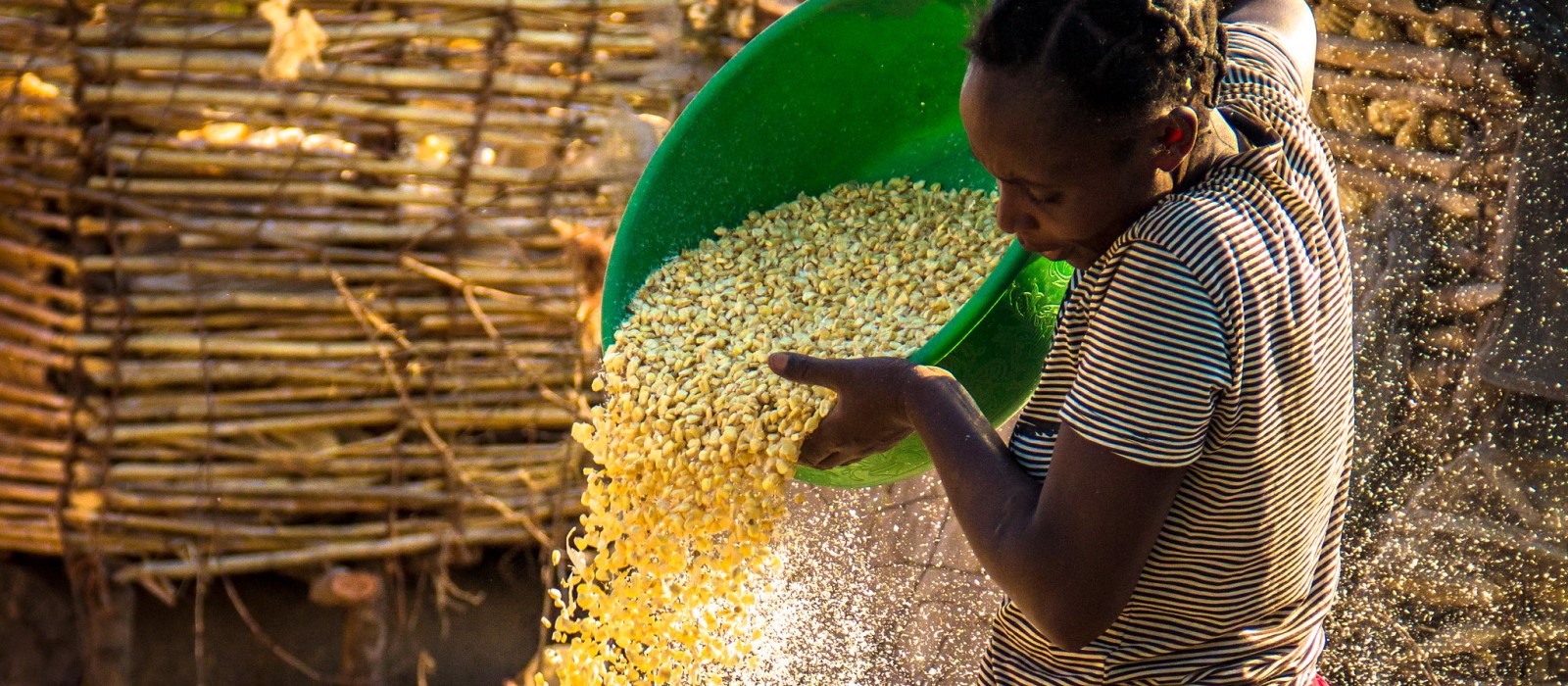Seasonal hunger in Zambia: Smoothing consumption through better planning

Alex Berger via Flickr
Policy Context
This project investigates seasonal poverty in rural Zambia, where most households depend on agriculture as their primary source of income. Zambian farmers principally grow maize (Kabwe 2018), which is harvested once per year. 80% of households run out of maize before the next harvest; this period is referred to locally as the “hungry season.” The researchers hypothesize that cognitive constraints pose a challenge to households saving sufficiently for the hungry season. Drawing on insights from psychology, our research team designed a simple, low-cost planning intervention to help farming households save more of their harvest and reduce seasonal hunger.
Study Design
Drawing on insights from psychology, our research team designed a simple, low-cost planning intervention to help farming households save
more of their harvest and reduce seasonal hunger. The intervention used a visual planning board to help households plan how to allocate their maize, marking the board with their estimated expenditures across different categories for the year. Households then attached labels to their bags of maize corresponding to each estimated expenditure category. To gauge the impact of the intervention, the study team surveyed households throughout the year, measuring household consumption levels, child health and development, farm investment and output and changes in farmers’ beliefs about how much maize they were able to save.
Results and Policy Lessons
This project evaluated the impact of the intervention using a randomized control trial with over 800 households. Findings suggest that the planning intervention is a powerful tool for helping families save for the hungry season, with implications in the short- and long- term that could help to break the cycle of poverty. Participants were systematically over-optimistic about their budgets. Participants who did not take part in the focused budgeting activity overestimated their future savings by 81 percent, on average. Participants who took part in the focused budgeting activity updated their spending plan to include an average of 20-60 percent more non-food expenses than their initial forecast. The budgeting activity increased savings by 20 percent by the start of the hungry season and increased annual crop output by 9 percent the following year.
These results show that addressing budget neglect with a focused budgeting activity can have substantial impacts on immediate as well as future welfare. In addition to measuring the activity’s impacts on savings, we identified the mechanisms through which it generated these impacts. Thinking through the year’s budget within specific categories and then comparing that budget against actual savings generated more realistic spending beliefs. These updated beliefs smoothed spending throughout the year, reduced the need to work for wages and increased investments in productivity.
Please see the linked Agrilinks webinar for study design, results and next steps:


